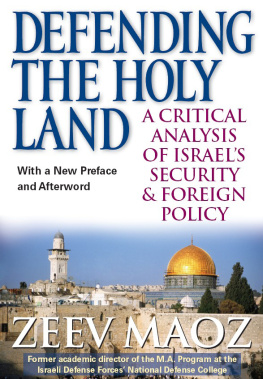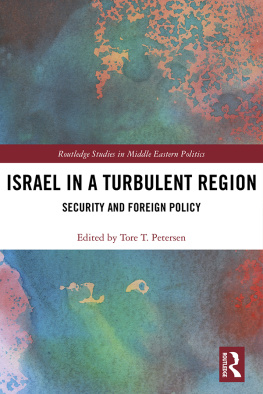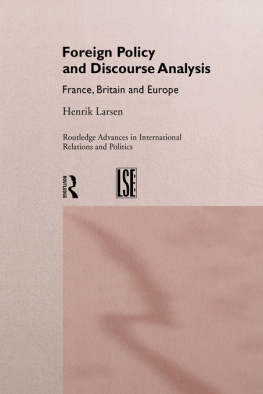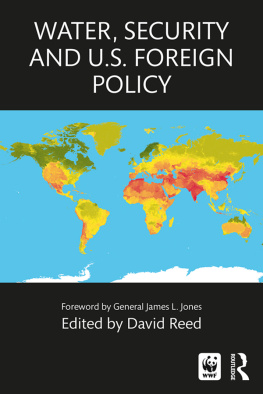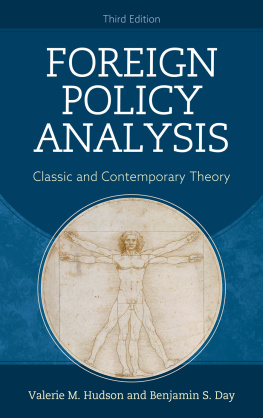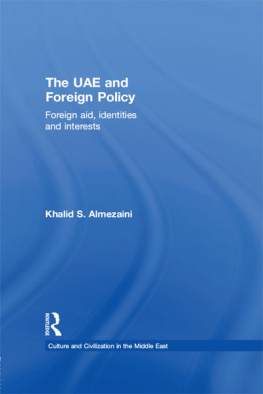Maoz - Defending the Holy Land: a critical analysis of Israels security & foreign policy
Here you can read online Maoz - Defending the Holy Land: a critical analysis of Israels security & foreign policy full text of the book (entire story) in english for free. Download pdf and epub, get meaning, cover and reviews about this ebook. City: Ann Arbor;Israel, year: 2009, publisher: University of Michigan Press, genre: Politics. Description of the work, (preface) as well as reviews are available. Best literature library LitArk.com created for fans of good reading and offers a wide selection of genres:
Romance novel
Science fiction
Adventure
Detective
Science
History
Home and family
Prose
Art
Politics
Computer
Non-fiction
Religion
Business
Children
Humor
Choose a favorite category and find really read worthwhile books. Enjoy immersion in the world of imagination, feel the emotions of the characters or learn something new for yourself, make an fascinating discovery.
Defending the Holy Land: a critical analysis of Israels security & foreign policy: summary, description and annotation
We offer to read an annotation, description, summary or preface (depends on what the author of the book "Defending the Holy Land: a critical analysis of Israels security & foreign policy" wrote himself). If you haven't found the necessary information about the book — write in the comments, we will try to find it.
Maoz: author's other books
Who wrote Defending the Holy Land: a critical analysis of Israels security & foreign policy? Find out the surname, the name of the author of the book and a list of all author's works by series.
Defending the Holy Land: a critical analysis of Israels security & foreign policy — read online for free the complete book (whole text) full work
Below is the text of the book, divided by pages. System saving the place of the last page read, allows you to conveniently read the book "Defending the Holy Land: a critical analysis of Israels security & foreign policy" online for free, without having to search again every time where you left off. Put a bookmark, and you can go to the page where you finished reading at any time.
Font size:
Interval:
Bookmark:
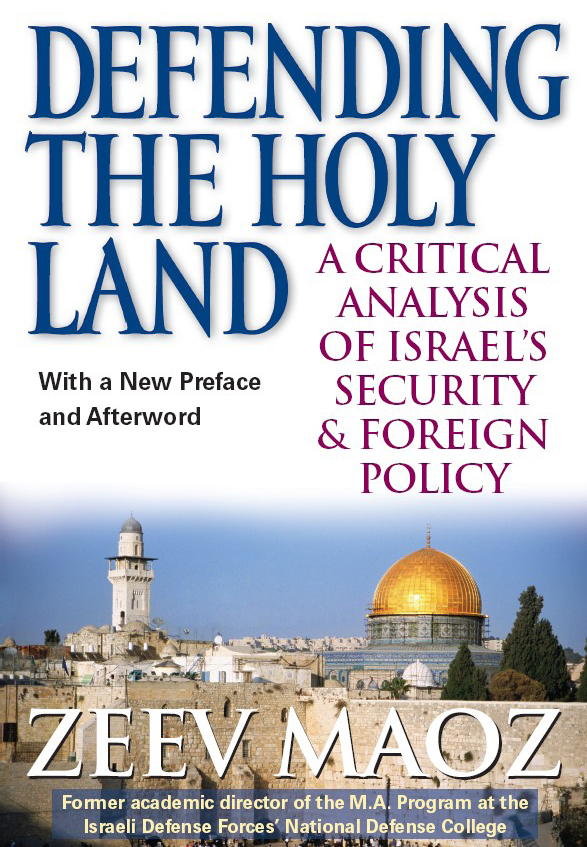
ZEEV MAOZ
With a New Preface and Afterword
THE UNIVERSITY OF MICHIGAN PRESS
Ann Arbor
First paperback edition 2009
Copyright by the University of Michigan 2006
All rights reserved
Published in the United States of America by
The University of Michigan Press
Manufactured in the United States of America Printed on acid-free paper
Printed on acid-free paper
2012 2011 2010 2009 5 4 3 2
No part of this publication may be reproduced, stored in a retrieval system, or transmitted in any form or by any means, electronic, mechanical, or otherwise, without the written permission of the publisher.
A CIP catalog record for this book is available from the British Library.
Library of Congress Cataloging-in-Publication Data
Maoz, Zeev.
Defending the Holy Land: A critical analysis of Israel's security and foreign policy / Zeev Maoz.
p. cm.
Includes bibliographical references and index.
ISBN-13: 978-0-472-11540-2 (cloth : alk. paper)
ISBN-10: 0-472-11540-5 (cloth : alk. paper)
ISBN-13: 978-0-472-03341-6 (pbk. : alk. paper)
ISBN-10: 0-472-03341-7 (pbk. : alk. paper)
ISBN-13: 978-0-472-02173-4 (electronic)
1. IsraelForeign relations. 2. National securityIsrael. 3. Arab-Israeli conflict. I. Title.
DS119.6.M32 2006
327.5694009045dc22 2005030218
In memory of AVNER YANIV
Thomas L. Friedman's first rule of Middle East reporting is Never lead your story out of Lebanon, Gaza, or Iraq with a cease-fire; it will always be over by the time the next morning's paper is out. This rule applies not only to journalists who write about things as they happen; it applies not only to cease-fire reporting; it is equally valid advice for scholars who write about the more general aspects of Middle East politics. Events in the Middle East have a tendency to overtake those who write about themincluding those who study general patterns rather than specific episodes. Even the history of the regionor rather our understanding of that historyevolves and changes over time. Naturally, this requires authors to revisit their research as time passes.
The research and writing of Defending the Holy Land were completed in the summer of 2004. I did a number of limited revisions in the winter of 2005, including limited references to what appeared to be then an Israeli plan to withdraw from the Gaza Strip and dismantle the Jewish settlements in this area. The book itself was published in May 2006. Two months later, Israel initiated yet another war against Lebanon in retaliation to a Hizballah kidnapping of two Israeli soldiers. During the war I appeared in a number of media venues and wrote a number of op-ed pieces criticizing Israeli conduct of the war on moral, political, and strategic grounds.fiasco, but my warnings, like those of otherrather fewIsraeli experts, fell on deaf ears. The same applies to writings about the Israeli conduct (or rather misconduct) of the Intifada, the continued building of illegal settlements in the West Bank, and the persistent dominance of security concerns and the security establishment over Israel's foreign policy and diplomacy. One can say similar things about the shortsightedness, folly, and recklessness of Israel's enemiesprincipally the Palestinians and Hizballah. But this too is not an excuse for the continued malfunctions in Israel's diplomacy and military strategy.
Unfortunately, the events over the last two years since the book was published vindicated most of the arguments I had made in the book. There is very little that required revising. In fact, the recommendations of the Vinograd Inquiry Commission that the Israeli government appointed to investigate the political and military conduct of the Second Lebanon War read a lot like of Defending the Holy Land. It is important, however, to cover very briefly the Second Lebanon War and the continued conduct of the Intifada. Also, the continued WMD escalation in the region requires some discussion. Accordingly, I have added a brief afterword that discusses these events. A more extensive study of these processes will be published subsequently, but the general themes that I have emphasized in the original version of the book have not changed. Perhaps it is naive to expect they would. Nevertheless, the events of the last two years indicate that an alternative approach to Israel's security and foreign policy is urgently needed before another catastrophe takes place.
Thomas L. Friedman, Ballots and Boycotts, New York Times, January 13, 2005, A35.
. Some of the articles were widely cited (Morality Is Not on Our Side, published in Ha'aretz on July 25, has over 2,700 hits on Google and was translated into more than twenty languages).
This book has been brewing in my mind for nearly three decades. I have closely followed Israel's national security and foreign policy over the years. Like for many other Israelisscholars and laypersonswho followed these policies, this was not a detached and distant scrutiny. It was an anthropological process of participating observation. I have both taken part and had major stakes in many of the events and processes that are discussed in this book. As a soldier I participated in three of the wars that are discussed herein: I served as a young soldier in the War of Attrition, fighting in the northern section of the Suez Canal. As a reserve officer I participated in the Yom Kippur War and the Lebanon War. I also did numerous tours of duty (in both my standing army career and my reserve duty) in the occupied territories. In the early 1990s I had a brief stint on a team advising Yitzhak Rabin on strategic affairs.
For the most part, this process of observation was rather depressing; only a few years during this period offered rays of hope. What bothered me more than specific episodes of ineptitude, folly, and deceptionand there were many of these over the yearswere two aspects of policy-making that have not received sufficient attention. First, I was concerned by the persistent failure of the policy community to learn from Israel's mistakes. This lack of self-inspection applied not only to politicians and bureaucrats but also to a significant portion of the scholarly community in Israel, the Israeli media, andof coursepublic opinion. In too many areas of policy, Israel has experienced persistent and repeated failures. Yet, many of these failures were explained away or covered up as somethingelse. Even when they were recognized as failures, no meaningful reforms were undertaken. Things remained pretty much as they had been before the fiascos.
Second, I became increasingly uncomfortable with the uncritical treatment by most Israelis of the foundations of Israel's national security doctrine. Although Israelis are generally a critical and cynical breed, there is an underlying consensus on many fundamental security and foreign policy issues. There is a general agreement on the underlying assumptions of Israel's security and foreign policy (for example, on the elements of the threat to Israel's security). There is a general consensus on some fundamental principles of Israel's security doctrine (e.g., the need to rely on an offensive and escalation dominant doctrine). And there is a fairly consensual interpretation of certain outcomes of these policies (e.g., that Israel's nuclear policy has been a phenomenal success). Consensus is a good thing if it is based on correct assumptions and principles. My feeling was that too many of the foundations of Israel's security and foreign policy doctrine have become religious principles rather than propositions that need to be tested against the empirical facts. Because almost nobody bothered to examine whether this general consensus is based on a correct reading of Israel's environment and policies, there was a significant void in the literature dealing with Israel's national security and foreign policy. There were almost no efforts to evaluate the various contours of these policies. This book is an attempt to systematically examine and review both the foundations of these policies and their operational expressions.
Font size:
Interval:
Bookmark:
Similar books «Defending the Holy Land: a critical analysis of Israels security & foreign policy»
Look at similar books to Defending the Holy Land: a critical analysis of Israels security & foreign policy. We have selected literature similar in name and meaning in the hope of providing readers with more options to find new, interesting, not yet read works.
Discussion, reviews of the book Defending the Holy Land: a critical analysis of Israels security & foreign policy and just readers' own opinions. Leave your comments, write what you think about the work, its meaning or the main characters. Specify what exactly you liked and what you didn't like, and why you think so.

